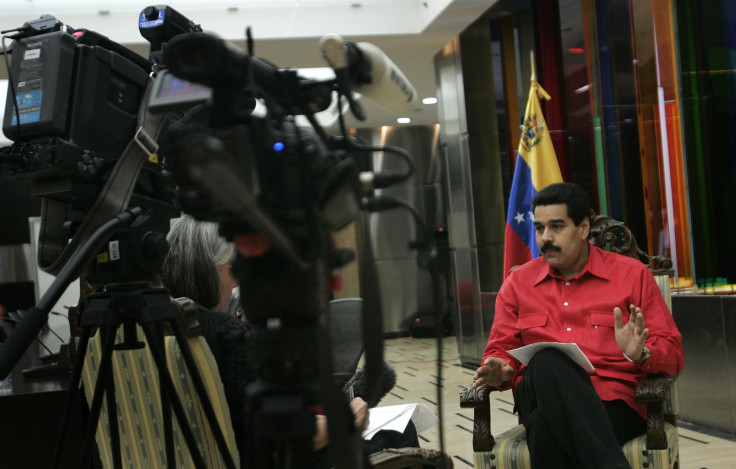Watching TeleSUR English, Venezuela's State-Backed News Site For English Speaking Audiences

Hugo Chavez, the late Venezuelan president, set off panic buttons among some U.S. officials in 2005 when he launched TeleSUR, a state-backed television news network he hoped would spread his message of Bolivarian socialism -- and even rival what he said was CNN’s influence in the region. The network’s president, Andres Izarra, called it an “initiative against cultural imperialism.” U.S. Rep. Connie Mack, a Florida Republican, called it “antiAmerican, antifreedom rhetoric.”
Nine years later, TeleSUR has outlived U.S. protests and the Comandante himself -- and it’s trying to woo young, digital audiences in the U.S. and the U.K. with an English-language news site, which launched on July 25. TeleSUR English hasn't made a big splash in English-speaking media circles, but the network is trying to grow its base, evidenced by a full-page ad it recently took out in the New Yorker magazine. And while TeleSUR English’s leftist slant predictably pervades its coverage, its U.S. features are surprisingly tuned in to many of the pressing social issues that affect communities throughout the country.
Like its Spanish-language counterpart, TeleSUR English receives the bulk of its funding from the Venezuelan government, with additional backing from the governments of Cuba, Ecuador, Argentina, Bolivia, and Nicaragua. With that sort of patronage, it’s not exactly a model of independence and objectivity, and its biases are often glaringly obvious.
Reports on the Gaza conflict are staunchly pro-Palestinian, referring to the fighting between Israeli Defense Forces and Hamas as “Israel’s war on Gaza” and highlighting Venezuelan aid and support for Palestinians. Stories about Russia focus on Moscow’s struggle with U.S. sanctions, and the network notes that Western leaders accuse Putin’s government of meddling in Ukraine “despite blatant support for Ukraine’s new leadership -- including far-right political groups -- by the same Western leaders.” A robust interactive commemorating Fidel Castro’s 88th birthday features a section on Castro’s rocky relationship with the U.S., with a not-so-subtle title of “Fidel and the Empire.”
TeleSUR English’s Venezuela coverage is also what one might expect from a state-financed venture. The site’s domestic coverage highlights internal fractures in the political opposition and its “strategy of violence” in the clash between protesters and police this spring that left more than 40 people dead. The site also refers to opposition leader Leopoldo Lopez, who turned himself in at the height of the protests, as “Venezuelan Coup Plotter Lopez.”
The site’s U.S. features, however, bear none of the kind of incendiary rhetoric that the country’s leaders have at times had for the U. S. A weekly video program titled “The Real USA,” which has broadcast three 20-minute episodes so far, zeroes in on the same pressing social issues in the country that many U.S. outlets have delved into: income inequality, police violence, poverty and immigrant communities. Its most recent episode, released Aug.t 12, featured segments on San Francisco’s soaring rents, urban migration in Denver, an Arizona man who attempts to rescue migrants crossing the border in extreme weather conditions, and an undocumented lawyer’s fight for U.S. citizenship. Another program, “Américans,” produced in collaboration with U.S.-based website Latino Rebels, features a long segment on Mayan millennial communities in the U.S., something that one might be hard-pressed to find in U.S. mainstream outlets.
Some of the production values leave a bit to be desired, with some of the lower-third captions numbingly obvious (“San Francisco has high rent”) or at times slipping into blatant editorializing (“We condemn the exploitation of guest workers and immigrants”). But in many ways, TeleSUR English’s U.S. coverage resembles a rougher version of the social justice-minded stories from Al-Jazeera America or even the Latino-focused stories of the ABC-affiliated network Fusion.
© Copyright IBTimes 2024. All rights reserved.






















